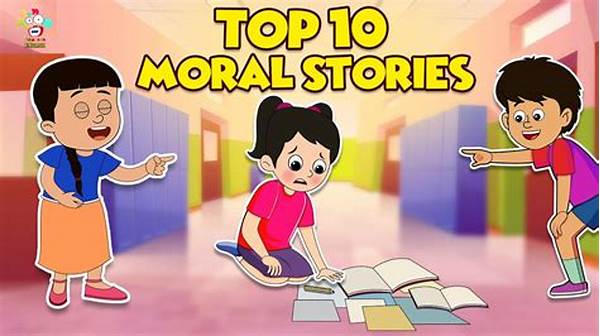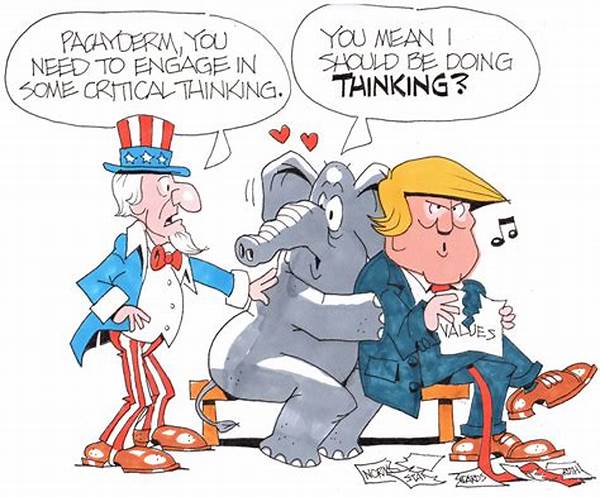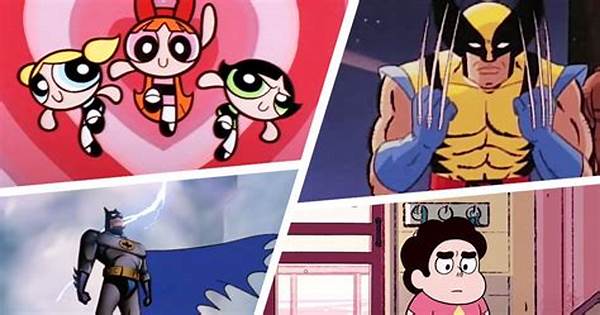The Impact of Cartoons on Young Minds
You might think cartoons are just a fun distraction for kids, but take a moment to consider the powerful moral lessons from cartoon stories that subtly influence their minds. Cartoons are more than just colorful animations; they’re goldmines of life lessons. You may not realize it, but while kids are glued to their screens, their favorite characters are teaching them how to be good people. Who would’ve thought a sponge living in a pineapple under the sea could impart wisdom about friendship and responsibility?
Read Now : Beloved Yuletide Animated Features
And let’s not forget the brave princesses and daring superheroes who teach us that bravery doesn’t come from superpowers but from having the guts to do the right thing. Stories are one of the most effective ways to teach, and cartoons manage to package those lessons up in a way that’s palatable for all ages. It’s like giving your child a vitamin that’s cleverly disguised as candy! Don’t underestimate the power of moral lessons from cartoon stories; they could shape the next generation’s heroes.
Classic Tales with Timeless Morals
1. Courage: Think of Simba from “The Lion King” facing his fears. This cartoon shows us that courage isn’t the absence of fear but the triumph over it—an essential component of moral lessons from cartoon stories.
2. Honesty: Pinocchio teaches us the importance of telling the truth, making it one of the standout moral lessons from cartoon stories that every child can understand and remember.
3. Responsibility: “Spider-Man” taught us that with great power comes great responsibility, showing that moral lessons from cartoon stories can have a lasting impact on viewers of all ages.
4. Empathy: In “Inside Out,” we learn to appreciate all our emotions, illustrating the importance of understanding and empathy—key elements in moral lessons from cartoon stories.
5. Perseverance: Remember Nemo’s adventure? It teaches us to keep swimming no matter the obstacles. It’s a classic example of perseverance as one of the moral lessons from cartoon stories.
Engaging with Cartoons: A Parent’s Role
While cartoons sprinkle wisdom here and there, the role of parents in decoding these moral lessons from cartoon stories is crucial. Imagine sitting beside your child, sharing a laugh and a learning moment as the characters on screen navigate through conflicts. Address the lessons openly, and ask questions like, “Why do you think that character did that?” You’ll find kids are surprisingly receptive to these discussions.
It’s also important to choose cartoon stories that align with the values you want to instill in your children. Not all cartoons are created equal—some offer richer moral lessons than others. Aren’t we all searching for those perfect examples to thrust into our kids’ playlists? The beauty of moral lessons from cartoon stories is that they offer a fun and engaging way to start essential conversations that might otherwise seem daunting.
Why Do Kids Connect with Cartoons?
Cartoons are visually engaging and emotionally compelling, making them an ideal medium for imparting moral lessons. Who needs a dry lecture when you can have an animated character steal your heart and teach you at the same time? Kids connect with these characters on an emotional level, often mimicking their behaviors and adopting their philosophies. That’s why moral lessons from cartoon stories can have such a profound impact—they speak a language kids understand and relate to.
1. Visual Appeal: Bright colors and dynamic animations make stories more memorable, reinforcing moral lessons from cartoon stories effectively.
2. Emotional Resonance: Characters often face emotional challenges, making it easier for kids to relate and internalize the lesson.
3. Narrative Simplicity: Simple plots make it easier to distill complex moral principles, allowing kids to digest and understand these lessons effortlessly.
4. Repetitive Themes: Recurring themes allow kids to see moral principles in different contexts, reinforcing their understanding.
5. Character Relatability: Kids often see themselves in the characters, making it easier to adopt the moral lessons from cartoon stories into their own lives.
Read Now : Powerful Animations For Mature Audiences
6. Conflict Resolution: Cartoons often find their characters in conflict, offering moral solutions that encourage critical thinking.
7. Symbolism and Metaphors: Hidden meanings and clever metaphors enrich the depth of moral lessons, offering layered education.
8. Engaging Dialogues: Catchy phrases and dialogues make the lessons catchy, aiding memory retention.
9. Role Models: Characters often embody virtues that kids can aspire to, providing constant encouragement.
10. Fantasy Elements: Magic and fantasy captivate children while still offering solid moral underpinnings.
Nurturing Young Minds with Cartoons
You may wonder why we put so much emphasis on these moral lessons from cartoon stories. The answer is simple: entertainment shapes behavior. The more we expose children to kindness, bravery, and honesty through their favorite characters, the more likely they will emulate those traits. We are, after all, creatures of imitation, aren’t we? Cartoons play a critical role in gearing up kids with the necessary armor to face real-world challenges.
By nurturing young minds with these visual tales, we’re molding better humans for tomorrow. Don’t treat cartoons as mere entertainment—see them for what they are, a treasure trove of valuable life lessons. Next time you sit through an animated feature with your child, remember that you’re not just watching a screen filled with colors and sounds but engaging in a primer for life’s most essential lessons.
The Power of Storytelling in Cartoons
Storytelling in cartoons is compelling because it doesn’t preach; it teaches by example. Sometimes, sneaking moral lessons from cartoon stories into an action-packed plot makes them stick even more. Kids might not remember every math lesson they had, but they will remember how Woody showed loyalty to Buzz in “Toy Story.”
Through storytelling, abstract moral ideas become relatable and understandable. That’s the genius of cartoons—they make the complexity of human emotions and morals accessible to young audiences. So while your child might think they’re just in it for the giggles, there’s a lot more going on beneath the surface.
In the end, moral lessons from cartoon stories are a treasure trove of virtues waiting to be discovered. These stories are more than just animated fun—they’re a divine blend of entertainment and education. As viewers, especially children, engage with their beloved characters, they’re imbibing the wisdom of ages in small doses. It’s like receiving a spoonful of sugar with a whole lot of valuable nutrients.
Imagine the impact if each child absorbs even a fraction of the bravery, kindness, and courage portrayed in these tales. The next time you dismiss cartoons as mere child’s play, think again. These animated wonders might hold the keys to nurturing future generations with solid moral compasses. So grab some popcorn, snuggle up, and let those moral lessons from cartoon stories work their magic.



